A Call to Action to Improve Math Placement Policies and Processes
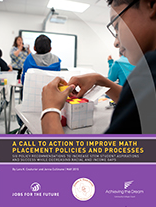
This report, a call to action is based on a simple but important premise: The nation cannot allow college placement policies, processes, and instruments to undermine promising efforts to increase student success in mathematics and increase attainment of STEM credentials. Source Organization: Jobs for the Future Visit the Resource
Advancing Deeper Learning Under ESSA: Seven Priorities
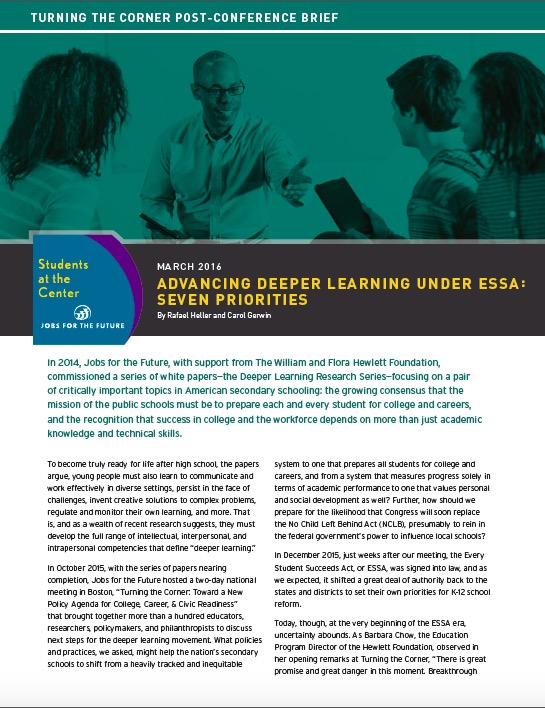
This brief recommends seven ways for supporters of deeper learning to take advantage of the changing education policy landscape, as authority shifts from the federal government to states and local districts. The authors outline priorities to help the nation’s high schools move from a largely inequitable system to one that prepares all students for college… Read More ›
Competency-Based Education in Three Pilot Programs
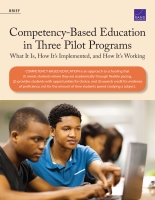
This research brief summarizes findings of the RAND evaluation of Bill & Melinda Gates Foundation’s Project Mastery grant program, which was created in 2011 to support competency-based education initiatives in large school systems that serve a high proportion of disadvantaged youth. Competency-based education meets students where they are academically, provides students with opportunities for choice,… Read More ›
STEM in Afterschool and Summer Learning: Issue Brief
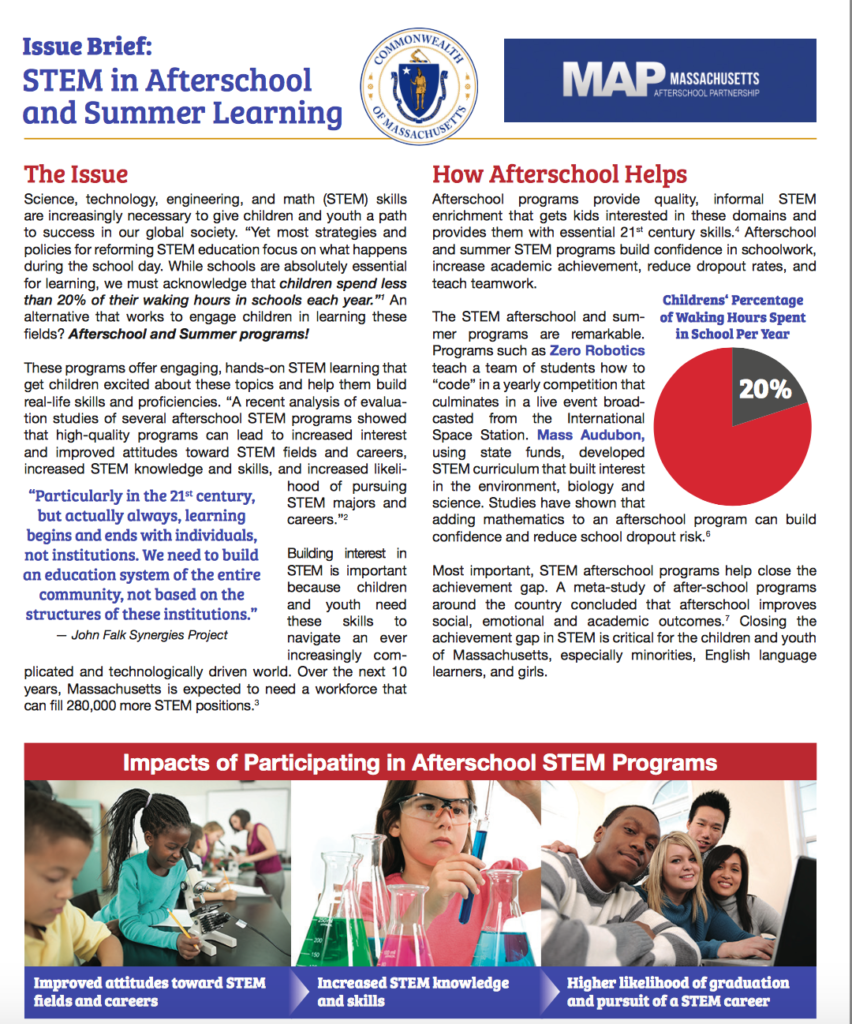
This issue brief explores the role of after school and summer programs in building skills and interest in STEM fields. While practices that support STEM skills during the school day are critical, students traditionally spend only 20% of their waking hours in school. Afterschool and summer programs can offer hands-on experiences, expose students to STEM… Read More ›
Performance Assessments: How State Policy Can Advance Assessments for 21st Century Learning
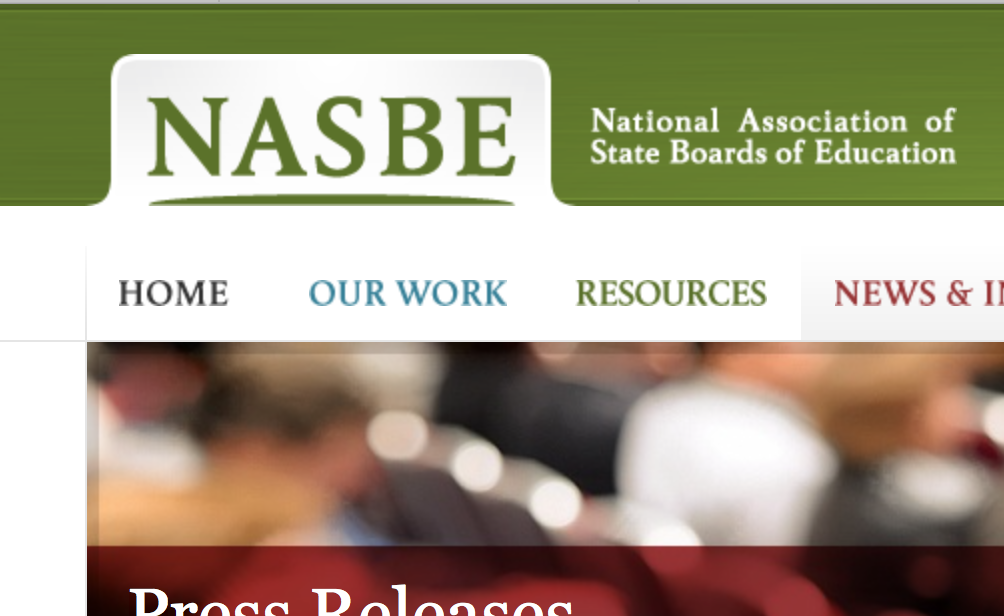
This report is intended to familiarize state boards of education with performance assessments and help state board members and other policymakers address some of the thorniest issues around these assessments: purpose, sustainability, reliability, accountability, policy alignment, equity, professional practice, and implementation. The report ends with a set of discussion questions so that each state can… Read More ›
State Approaches to Competency-Based Education to Support College and Career Readiness for All Students
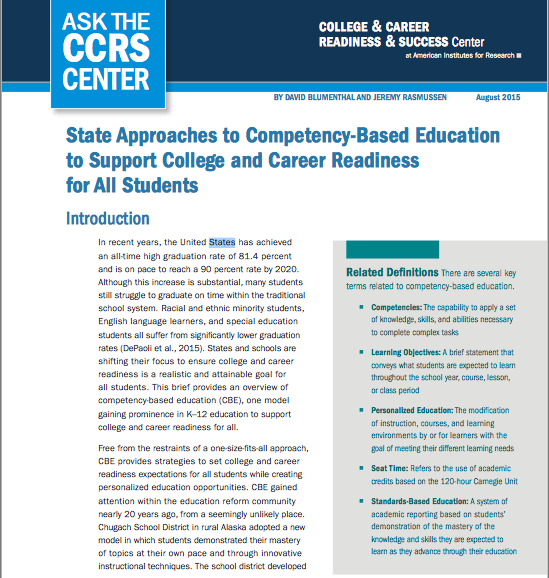
This brief provides an overview of competency-based education (CBE). Free from the restraints of a one-size-fits-all approach, CBE provides strategies to set college and career readiness expectations for all students while creating personalized education opportunities. Using many state policy examples, this brief looks at specific ways states are using CBE to support college and career readiness… Read More ›
Maximizing Competency Education and Blended Learning
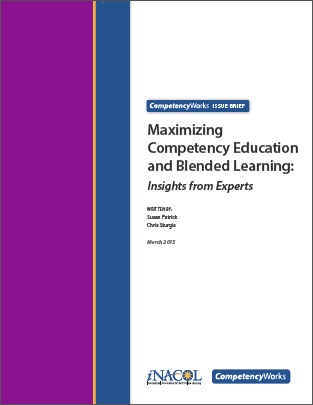
This brief is based on a two-day conversation with twenty-three incredibly insightful people who work in competency education, personalized learning, and blended learning. There are several parts to the paper, including: an exploration of the relationship between personalized learning, competency education, and blended learning and the concerns about equity that arise in each; issues that district… Read More ›
Leadership in Action: What are Personalized Learning Pathways?

This issue brief from the New England Secondary School Consortium’s Leadership in Action series outlines what personalized learning really means. Personalized learning pathways encourage students to pursue their passions while encouraging them to take more responsibility for their education. Source Organization: New England Secondary School Consortium (NESSC) Visit the Resource
Leadership in Action: What Are Personal Learning Plans?
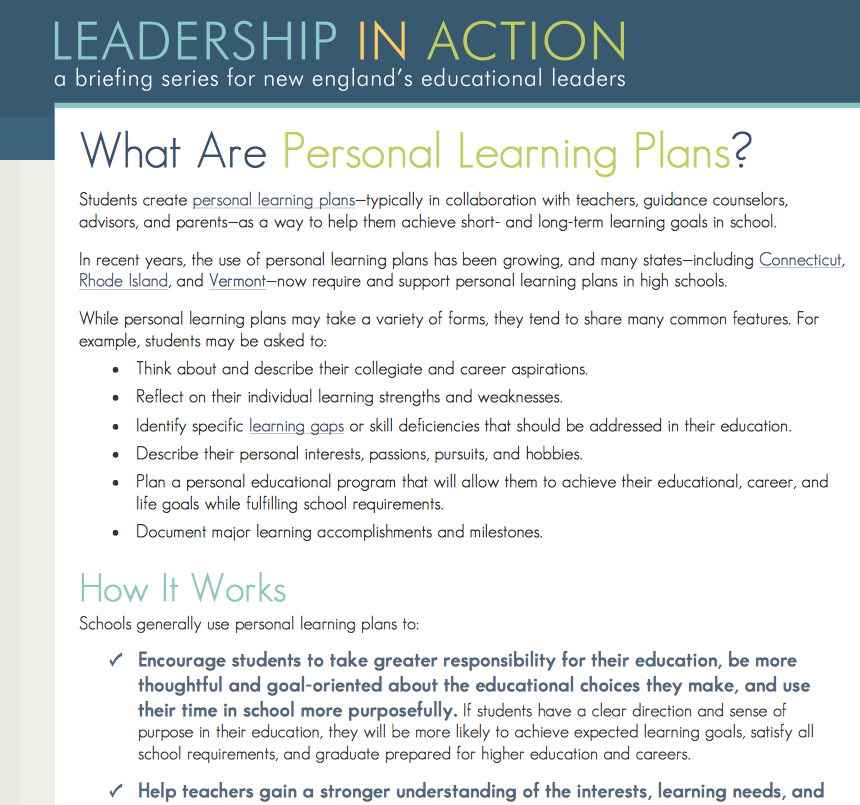
This issue brief from the New England Secondary School Consortium’s Leadership in Action series outlines what personal learning plans look like, and how schools are using them to help students achieve short and long term learning goals. Source Organization: New England Secondary School Consortium (NESSC) Visit the Resource
Leadership in Action: What is Profiency-Based Grading?
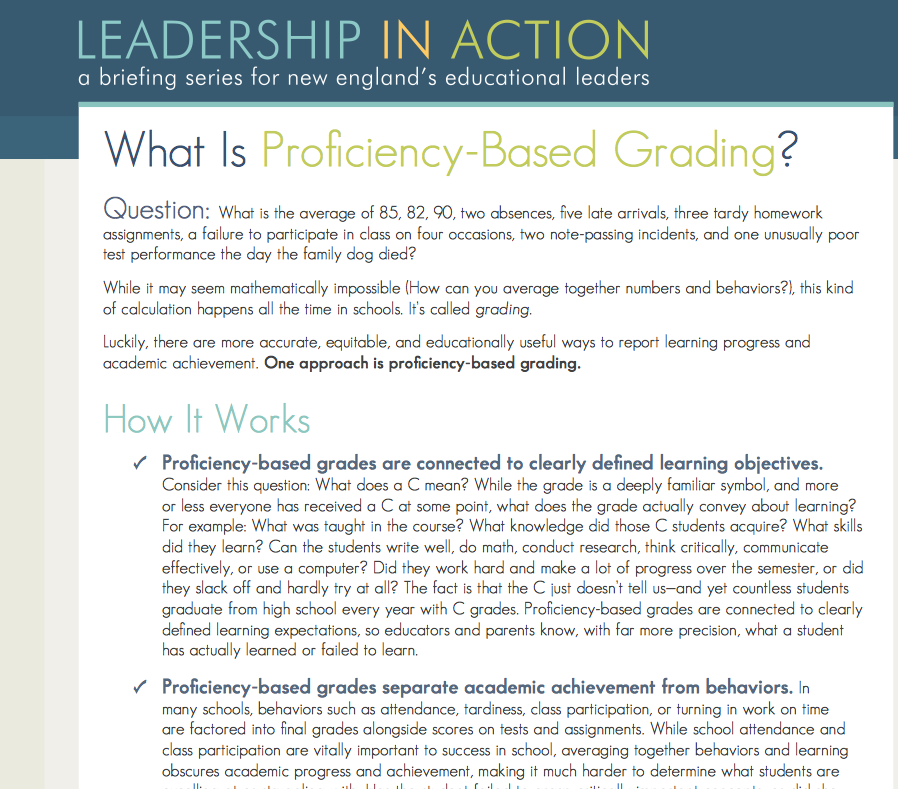
This issue brief from the New England Secondary School Consortium outlines what separates proficiency-based grading from traditional grading. Source Organization: New England Secondary School Consortium (NESSC) Visit the Resource
Necessary for Success: Building Mastery of World-Class Skills
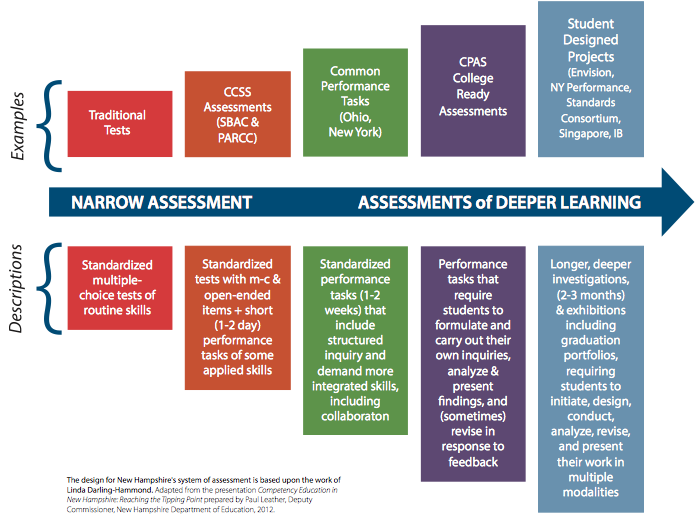
This issue brief describes competency-based systems and reforms in districts and schools from Maine to Florida, and makes suggestions for education leaders around changing policy, fostering progressive public discourse, and supporting teachers. Source Organization: CompetencyWorks VISIT THE RESOURCE
Re-Engineering Information Education Technology Design Considerations for Competency Education

This brief addresses information education technology, as it relates to competency education, detailing the classroom, district, and state-level requirements of a student-centered system. The authors of the report analyze the knowledge of what makes up an effective competency-based information system. Source Organization: CompetencyWorks VISIT THE RESOURCE